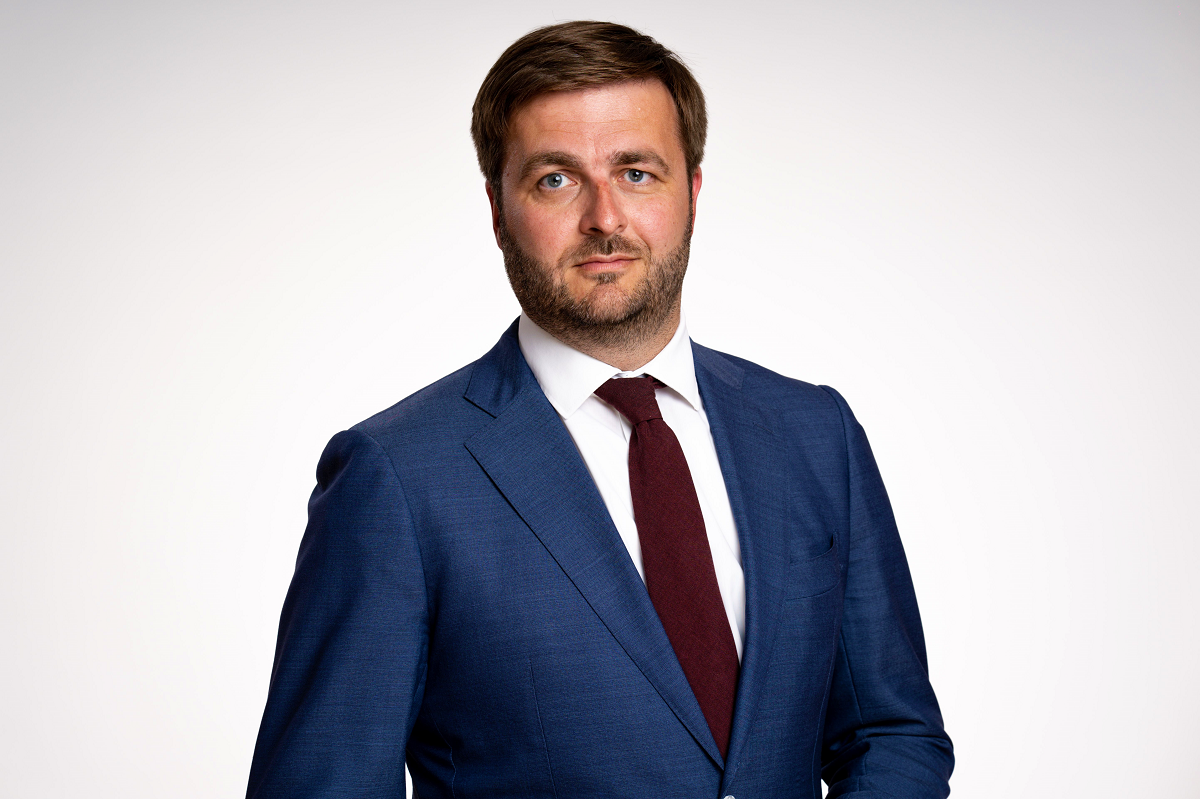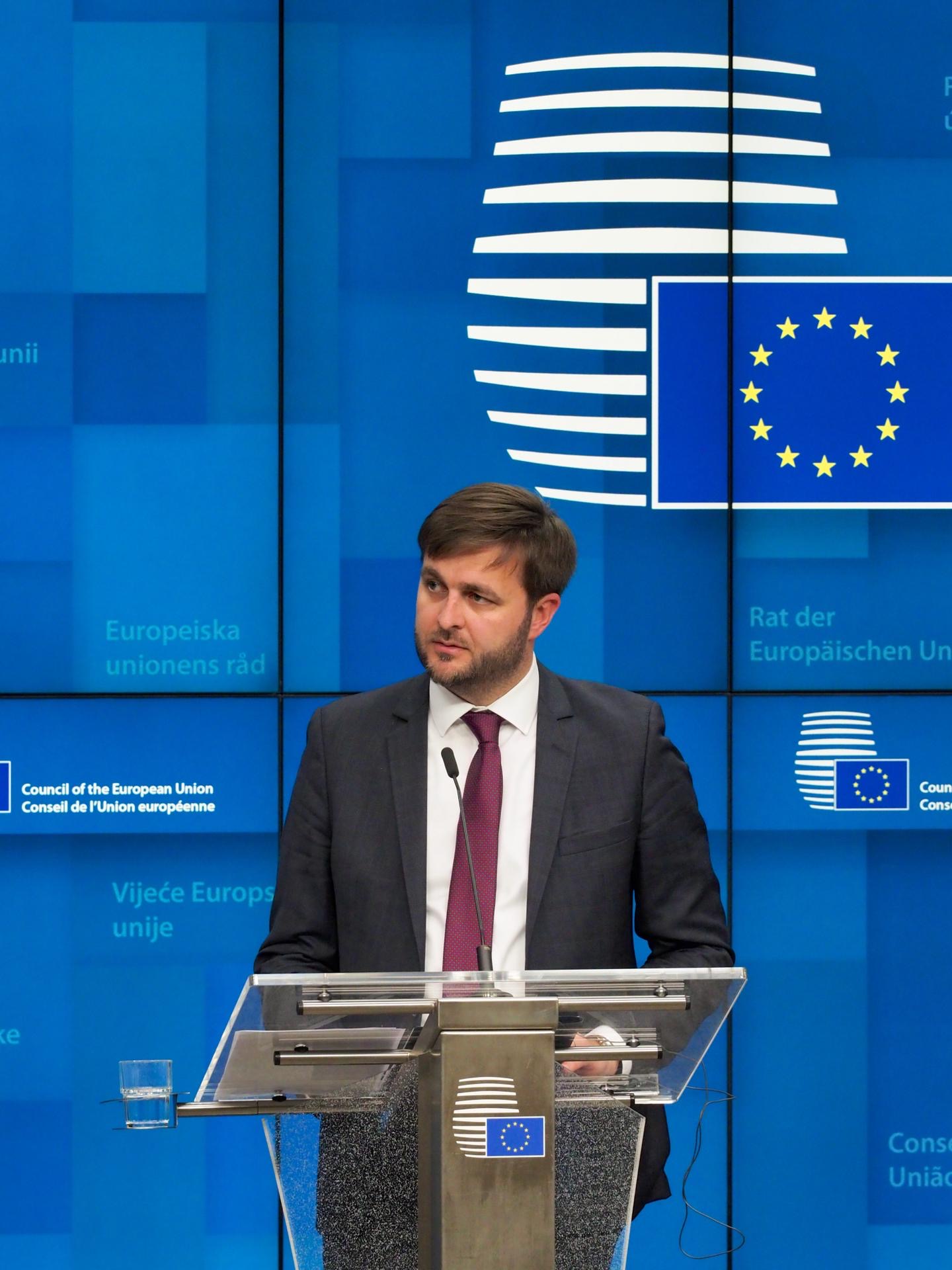Through investments, we want to ensure that the economy becomes sustainable, greener and circular through the supply of more environmentally friendly raw materials and energy.
Dr. sc. Tomislav Ćorić, Minister of Economy and Sustainable Development additionally explains that investments in renewable energy sources and energy itself will be carried out by increasing the production of energy from renewable sources, strengthening the infrastructure related to the reception and distribution of renewable energy sources, investing in energy efficiency and the development of new technologies.

Does Your Ministry have a clear vision of how this would look like and what will you do in the 2021?
Given the green direction taken by the European Union, which aims at the complete decarbonisation of Europe by 2050, the new financial perspective is opening up a number of opportunities for modernization and greening of production. Investing in production and increasing competitiveness by upgrading technological readiness is the desired direction of recovery of our industry and the economy as a whole. That is why we support the introduction of green and digital technologies and encourage clean and efficient production, digitalization of business and development of digital competencies. Our goal is to contribute to the preservation of existing and the creation of new jobs, facilitating the entry of companies into new markets and, ultimately, strengthening their competitiveness in the long run – all through legislative activities and projects.
The Krk LNG terminal started its operations. Does it fit into your vision?
We are satisfied and proud that after over two decades we have managed to implement a project that is of strategic importance for the Republic of Croatia. The terminal is built to the highest environmental and safety standards. In the first three years, capacity utilization is 100%, and by 2027 it will be 84%, which makes us especially happy because this alternative supply route will ensure our gas supply and encourage competition, which may affect the price of gas. The project was also recognized by the European Union, which co-financed it, it had the strong support of the Government of the Republic of Croatia, and with this project we put Croatia on the energy map of the world once and for all.

Does the Government of the Republic of Croatia intend to encourage the recovery of the economy from the crisis by investing in public infrastructure, especially given the availability of funds from EU funds?
It is important to emphasize that over the next three-year period, all the projects and programs of public infrastructure will contribute significantly to economic activity in the first years of recovery from the crisis. Currently, there are 59 ongoing projects in the Republic of Croatia to improve water utility infrastructure, with a total value of HRK 24.4 billion, which were stimulated with HRK 13.6 billion in grants from EU funds, as well as 12 projects worth HRK 1.6 billion for which HRK 1.4 billion in grants was provided. About 400 smaller and larger projects, which contribute to the revitalization of soil contaminated with waste and the promotion of sustainable waste management in the amount of about HRK 4.5 billion are underway. The Recovery and Resilience Facility will finance further improvements in water management, which is estimated to require HRK 16.5 billion. I would like to emphasize that the National Recovery and Resilience Facility, among other things, identifies three key programs: the Program for the development of public wastewater drainage worth HRK 11.7 billion, the Program for the development of public water supply in the amount of HRK 2.8 billion and the Disaster Risk Mitigation Program in the water management sector worth HRK 2 billion. At this point, the programming of a new 2021-2027 programme period has begun, and through it the financing of water utility infrastructure will continue, but also projects related to strengthening the disaster management system. In addition to the projects that will be phased out of this Operational Program, new water utility infrastructure projects and projects for defence against adverse effects of water are in various stages of preparation.
Promoting sustainable waste management is one of the priorities of the Republic of Croatia and the entire European Union…
The transformation of industry towards higher value-added products is not possible without inclusion in the circular economy. Next year, the plan is to continue investing HRK 1.87 billion in infrastructure for sustainable waste management through the National Recovery and Resilience Facility to prevent waste generation and separate waste collection and recycling in order to reduce waste disposal in landfills. These investments are of essential value to the modernization and improvement of existing recycling and waste management infrastructure, along with the development of alternative raw materials and increase in demand for recycled materials, and these are also a precondition for the transfer to circular economy. Given that circular economy covers all stages of the value chain, from production to consumption, repair and re-production, waste management and return of secondary raw materials to the economy, a large part of funds from the new 2021-2027Competitiveness and Cohesion Operational Program will be intended precisely for this purpose.
Will the Republic of Croatia finance projects that follow energy transition as yet another priority?
Investments in an energy transition for a sustainable economy is planned through the National Recovery and Resilience Facility. Investments in renewable energy sources and energy will be implemented through the reform of decarbonization of the energy sector, which includes increasing energy production from renewable sources, strengthening the infrastructure related to the reception and distribution of renewable energy sources, investing in energy efficiency and developing new technologies. The total investments planned for this purpose are HRK 21.96 billion, and the continuation is planned through the new Operational Program. It should be said that we want to ensure with all the mentioned investments that the economy will become sustainable, greener and circular through the supply of more environmentally friendly raw materials and energy.
Such investments will certainly have a long-term positive effect on the Croatian economy, but many entrepreneurs will also need more direct help to get out of the crisis. Do you have ready solutions for this type of state intervention in crisis?
In regards to outstanding additional resources and implementation mechanisms under the Investments for Growth and Jobs objective to help address the crisis, in the context of the Covid19 pandemic (REACT-EU), we plan to focus them on the real economy. Our goal is to strengthen the competitiveness of small and medium-sized enterprises by investing in digital and green investments that stimulate growth and thus increase their ability to respond to market challenges caused by the crisis which is the result of the spread of Covid-19 disease. Preference will be given to those who will be the drivers of the economy, i.e. those who will create the next generations of commercial opportunities driven by the demand for sustainable solutions and thus increase not only supply but also demand for sustainable products. The focus will be placed on establishing processes and technological capacities based on medium to highly developed technologies for competitive high-quality goods and services, which will lead to sustainable economic growth and certainly a higher level of employment.
Some entrepreneurs publicly expressed their criticism that the state didn’t help them enough in the crisis. What is your comment?
Already at the very beginning of the crisis, in March this year, we took measures to help preserve the liquidity of companies and jobs. So far, we have paid out HRK 7.4 billion, preserved 630,000 jobs and helped 107,000 companies. With a package of new measures related to jobs, covering part or all fixed costs during the suspension of work for sectors affected by the decisions of the Headquarters and Covid loans, we will help entrepreneurs and 80,000 employees to overcome this difficult period as painlessly as possible.